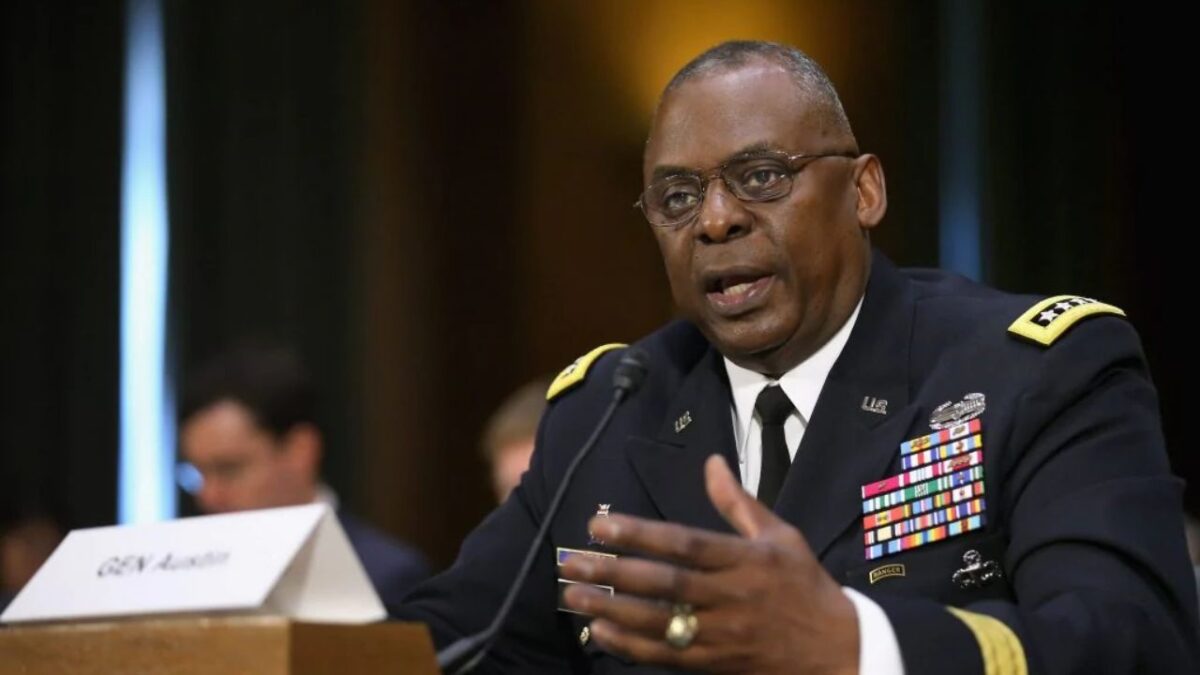US Defense Secretary Lloyd Austin said he does not have any “regrets” about how the U.S. military ended its war in Afghanistan in August 2021.
The secretary faced questions about the withdrawal on Wednesday when he and two other defense officials testified in front of the House Armed Services Committee about the president’s 2024 defense budget request.
He was asked if he had regrets about the withdrawal, to which he responded, “I support the president’s decision,” and when Republican Jim Banks brought up the 13 US service members who were killed in a bombing in the final weeks of the occupation, Austin said, “I don’t have any regrets.”
US President Joe Biden had announced the troops were withdrawing from Afghanistan by Sept. 11, 2021, the 20-year anniversary of the attacks that prefaced the war. But, in August, the Taliban launched a military offensive and quickly began taking control of territory before ultimately overthrowing the US-backed Ashraf Ghani government.
The US military conducted a noncombatant emergency operation beginning in mid-August, in which they ultimately evacuated about 120,000 civilians from Hamid Karzai International Airport, but thousands of allies were left behind to live in fear of the Taliban.
During the evacuation, on August 26, a Daesh suicide bomber detonated explosives close to a gate at the NATO military base at Kabul airport. About 170 Afghan civilians were killed along with 13 US service members.
Austin was asked if there has been any accountability for anyone within the Department of Defense for the “deadly, botched, and embarrassing” withdrawal, and he responded, “Our troops evacuated 124,000 people off that airfield.”
“Has anyone been held accountable for what happened in Afghanistan?” Austin was asked again, and the secretary responded, “To my knowledge, no.”
Last week, retired Gen. Frank McKenzie, former commander of US Central Command who oversaw the withdrawal, told the Washington Examiner that he supports congressional oversight of the war.
“Well, I would hope that — first of all, I think it’s a good thing,” he said. “I think oversight is a good and necessary thing. So I think it’s commendable that we’re doing this. I think that that’s the function that Congress provides. I would hope that as they execute this oversight, they will do several things. First, they will examine the totality of the war, which lasted over 20 years and involved multiple administrations.”
Austin’s comments meanwhile come amid the House Foreign Affairs Committee Chairman Michael McCaul’s ongoing investigation into the chaotic withdrawal. Having repeatedly requested information and documents from the State Department relating to the withdrawal – to no avail – McCaul on Monday subpoenaed Secretary of State Antony Blinken.
McCaul has demanded a copy of July 13, 2021, dissent cable signed by over two dozen US Embassy staff members in Kabul criticizing the preparations for the withdrawal from Afghanistan.
In a statement on Monday, McCaul said: “We have made multiple good faith attempts to find common ground so we could see this critical piece of information. Unfortunately, Secretary Blinken has refused to provide the Dissent Cable and his response to the cable, forcing me to issue my first subpoena as chairman of this committee.”
The United States left Afghanistan with the intent to conduct its counterterrorism operations from afar, a process that both McKenzie and his successor, Gen. Michael “Erik” Kurilla, has told lawmakers could be very difficult but not impossible.
Kurilla told lawmakers on the Senate Armed Services Committee about two weeks ago that it’s their assessment that ISIS-K would be able to target US interests, including possibly against the homeland, without much warning in about six months.
“It is my commander’s estimate that they can do an external operation against US or Western interests abroad in under six months with little to no warning,” he explained. “It is much harder for them to be able to do that against the homeland.”





